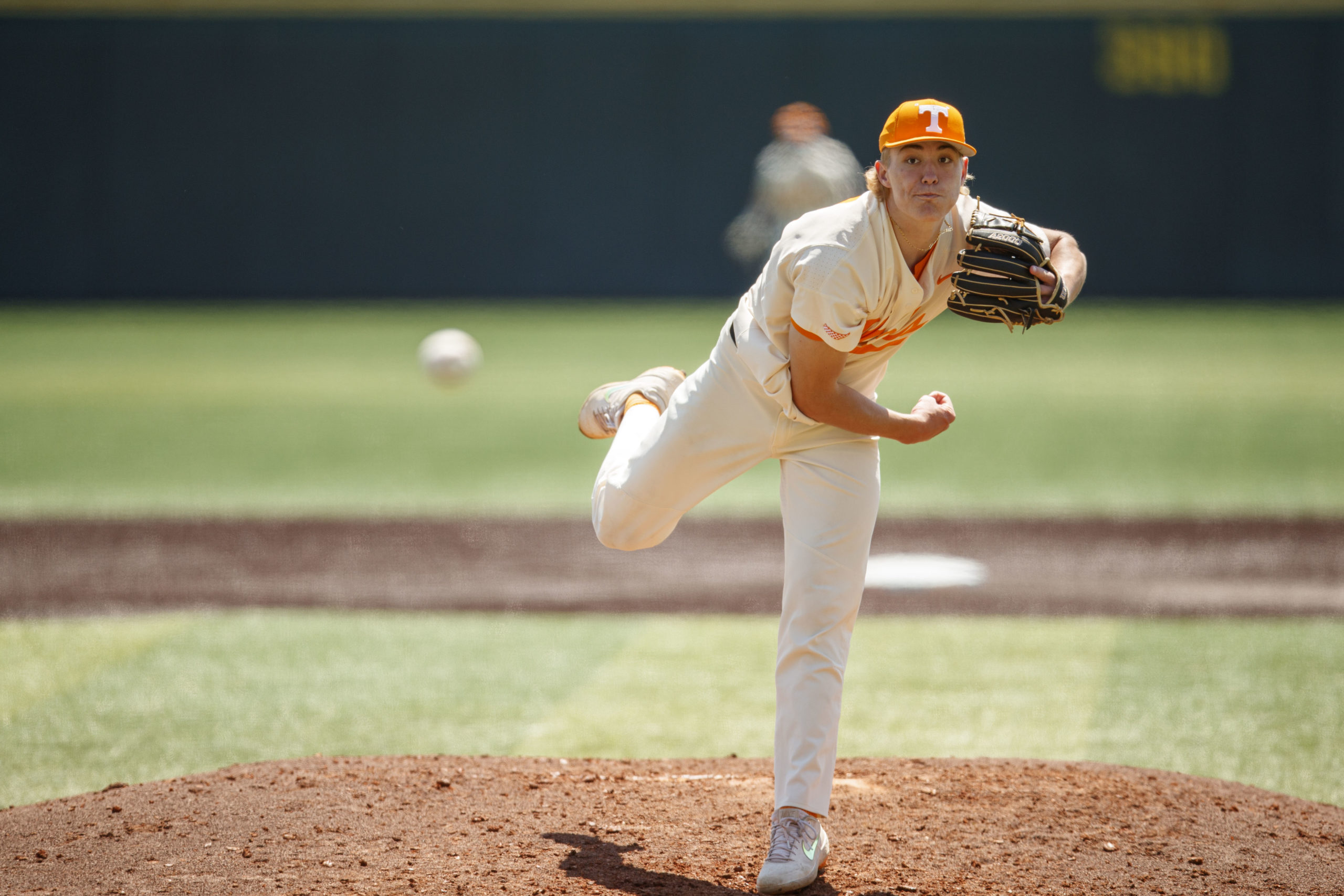BROOKLYN, N.Y. – A critical stage in a pitcher’s minor league development is realizing that their pitching repertoire can retire opposing hitters.
Blade Tidwell, the New York Mets’ second-round pick in the 2022 MLB draft, began moving in that direction last September when he helped the St. Lucie Mets win the Florida State League Championship. The young right-hander closed his first professional season pitching 9 2/3 scoreless innings while recording 13 strikeouts.
“Just getting my feet wet in pro ball was big for me. I developed a lot in the short time I was there because the coaching staff and environment was so good,” Tidwell said. “It gave me a lot of confidence. I think in baseball, once you have success, it’s easy to repeat. “
Tidwell earned a promotion to the Brooklyn Cyclones this season after making a strong impression in his initial pro season.
He had two promising outings to close out his first month, one where he pitched two scoreless innings as an opener against the Winston-Salem Dash and the other against the Jersey Shore BlueClaws, where he allowed three runs in five innings and struck out six on April 25.
“I think it is huge just to attack and get ahead,” Tidwell said. “I know as an organization we shifted to (the approach of) getting to two strikes before two balls, and you will have success on every hitter. I’m just throwing my game and getting ahead.”
“He is a gamer. There is a reason he went in the draft where he did. He knows how to go about his business. He is going to find a way to do what he does consistently. His work ethic is phenomenal, and his commitment is second to none. He is eager to learn,” Cyclones manager Chris Newell said.
His start at Jersey Shore illustrated his poise and fortitude after allowing three runs in his first two innings. After having trouble commanding his fastball early in the game, Tidwell started to use his slider. He started producing weak contact to shut out the BlueClaws in his remaining three innings.
“Originally, I think I was getting behind hitters and whenever I was ahead, I was not putting them away,” Tidwell said. “I think it was huge for me to attack the strike zone. My slider is my best pitch. Obviously, it is better because my fastball is good too. I will be using my slider in every game.”
A sign of growth for a young arm in their development is the strength to compensate and adapt when they do not have the effectiveness of a pitch.
“I think (his resiliency) is a testament to him with how he was raised,” Newell explains. “He’s been able to endure some of his little struggles early on. A lot of guys would pack it in and feel sorry for themselves. He on the other hand, just grinds out and looks at every inning as a new opportunity.”
A pitcher’s efficiency frequently depends on the relationship built with their catcher. It starts with work in bullpen sessions and studying opposing lineups. Tidwell’s work with his catcher Kevin Parada was a critical factor in his initial success.
In Tidwell’s final two starts for St. Lucie last year and two of his Brooklyn starts this season, Parada served as his batterymate. In the game against Jersey Shore, he threw out three potential base stealers to aid his starter.
“He is a very good pitch caller,” Tidwell said of Parada. “A lot of the time, we are on the same page, and it helps with the flow of the game when you don’t have to shake off the catcher very much.”
Before signing with the Mets, Tidwell pitched two seasons with the Tennessee Volunteers. He guided the Vols to a 10-3 record and a 3.74 ERA in 18 starts as a freshman in 2021.
Last year, Tidwell’s season started in late March due to shoulder discomfort. Tidwell worked his way back into the starting rotation as a relief pitcher. He pitched in 13 games (nine starts), striking out 51 batters while walking 11 in 39 innings. He finished behind Chase Dollander among starting pitchers for the Vols with a strikeout-to-walk ratio of 11.8 per nine innings.
“(I spent) a lot of time rehabbing and in the training room with UT’s trainer Jeffery Wood,” Tidwell said. “We had a really good relationship, so it was easy to go in there every day and put some work in.
“A lot of hard work got me back pitching and just building off what I have done. I think injury helps athletes because they can step back and reflect, and I had a lot of time to reflect on what I can get better at. I think I put that into use, and it worked.”
Tennessee pitching coach Frank Anderson significantly impacted Tidwell’s growth as a highly-touted draft prospect. Throwing first-pitch strikes and taking an aggressive stance against opposing hitters are two principles Anderson instills in all his pitchers. His simple and direct approach breeds confidence in his promising pitching staff.
Tidwell is the fourth Tennessee pitcher selected in the first four rounds of the draft since Anderson arrived in Knoxville in 2017.
“He was really big on finding your own way,” Tidwell said of Anderson. “He treated you like a professional. In pro ball, if you are struggling, you have to accept it and see for yourself and adapt because everybody is trying to make it, and not everybody will.
“It is proven all across baseball that batting averages drop when a hitter gets further behind in the count. When you attack the zone with multiple pitches, it opens everything up. I see how the hitter reacts to the previous pitch, and then I am locked into the next pitch.”
Tidwell is 6-foot-4, 207-pound righty with a four-pitch mix. He features a fastball touching 98 mph, a slider with tailing action against left-handed batters, a changeup in the high-80s and an occasional curveball.
His slider is his primary off-speed offering and is an effective out pitch deep in counts. His fastball also has swing-and-miss potential. But he must hone his pitch command to create an effective combination with his slider. If Tidwell consistently stays ahead in the count, he will avoid high-stress innings and last deeper into games.
“I think the more intent you have behind throwing every day, the more it separates you from the rest of your competition,” Tidwell said. “I practice tunneling and sequencing during my side sessions. That allows me to have a better feel for all of my offerings. The goal would be to throw fewer pitches per at-bat and get ahead in the count to generate weak contact and swing and miss.”
The Mets thought Tidwell had first-round talent and was a good value pick when they selected him in the second round of last year’s draft. According to MLB Pipeline, he is the team’s seventh-ranked prospect and the top pitching prospect in the Mets organization.
His progress is still in its early stages, but his resilience, composure and natural talent are stand-out qualities. He hopes to keep improving in future outings, developing trust in each of his pitches and building confidence on the mound.
“Trusting your stuff is the most important thing in pitching because trusting your stuff gives you confidence, and when you have confidence, you are going to throw it over the plate,” Tidwell said. “If you have true confidence in your stuff, you are going to have success.”
Want to learn more about Blade Tidwell? Read a detailed MLB draft profile on Blade Tidwell and his skill set here.


